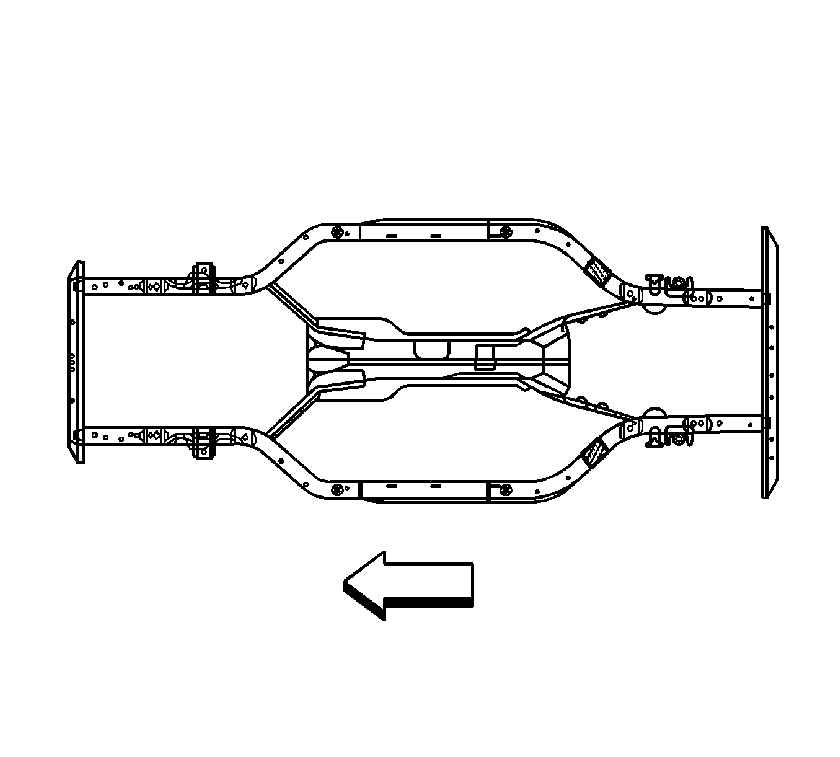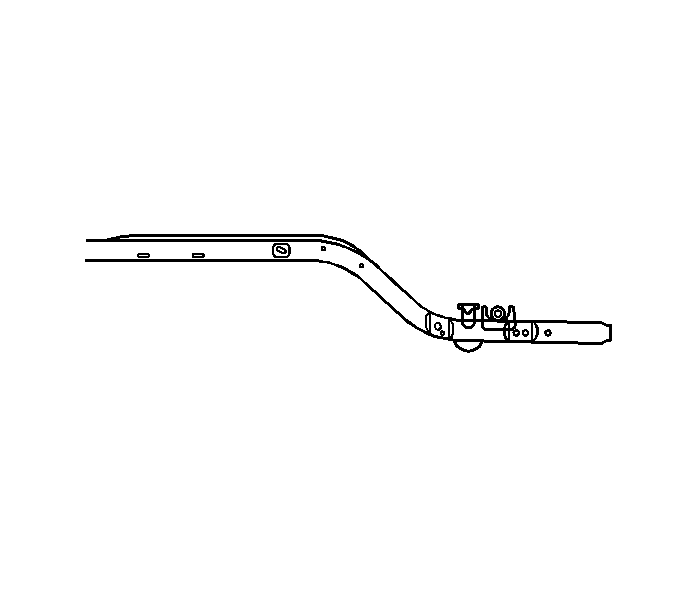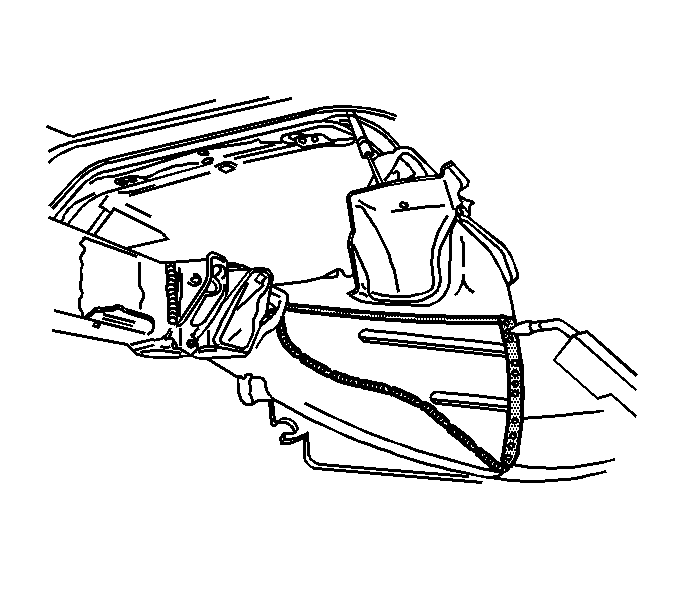For 1990-2009 cars only
Tools Required
J 42058 Frame Adapter Clamp
Removal Procedure
- Disable the SIR system. Refer to SIR Disabling and Enabling .
- Disconnect the negative battery cable. Refer to Battery Negative Cable Disconnection and Connection .
- Remove all related panels and components.
- Remove the rear impact bar. Refer to Rear Bumper Impact Bar Replacement .
- Remove the rear compartment panel. Refer to Rear Compartment Panel Replacement .
- Remove the fuel tank from the damaged side of the vehicle. Refer to Fuel Tank Replacement - Left Side or to Fuel Tank Replacement - Right Side .
- Note the location and remove the sealers and anti-corrosion materials from the repair area, as necessary. Refer to Anti-Corrosion Treatment and Repair .
- Restore as much of the damage as possible to the factory specifications. Refer to Dimensions - Body .
- Use J 42058 to secure the vehicle if pulling and straightening is required.
- Inspect the front of dash panel, the floor panels, and all other sheet molded compounds for cracks or for areas that may need to be repaired or resealed. Refer to Rigid Plastic Part Repair Materials .
- Remove any welds as necessary and pry up the extension panel to expose the frame rail.
- Apply 25 mm (1 in) tape to the extension panel of the outer lock pillar.
- Using a die grinder, cut along the edge of the tape line to create a weld flange, which will be used for installing the new extension panel for the outer lock pillar.
- Locate and drill out all factory welds. Note the number and the location of the welds for installation of the new lower extension panel for the outer lock pillar .
- Remove the outer lock extension panel.
- Using a die grinder cut through the stitch welds that attach the tunnel brace to the frame rail. Make the cuts favoring the frame rail side of the welds.
- Remove the damaged section of the frame rail within the shaded area.
Caution: Refer to Approved Equipment for Collision Repair Caution in the Preface section.
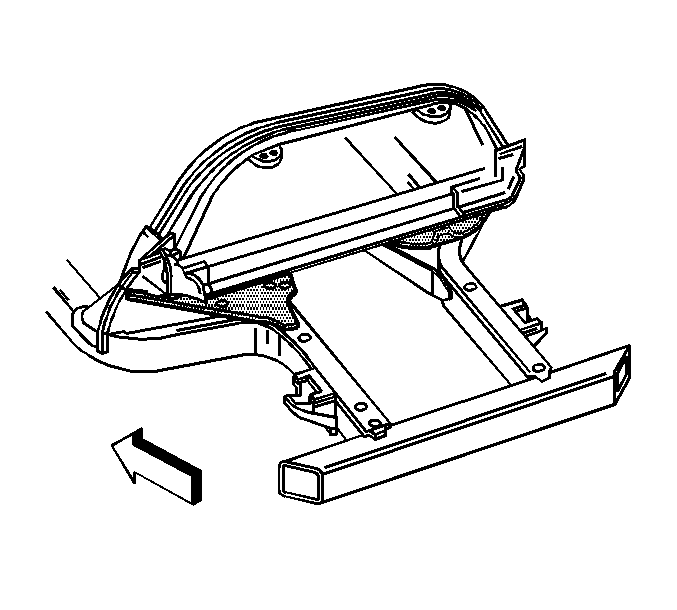
Caution: Refer to Sound Deadener Foam in the Lock Striker Pillars Caution in the Preface section.
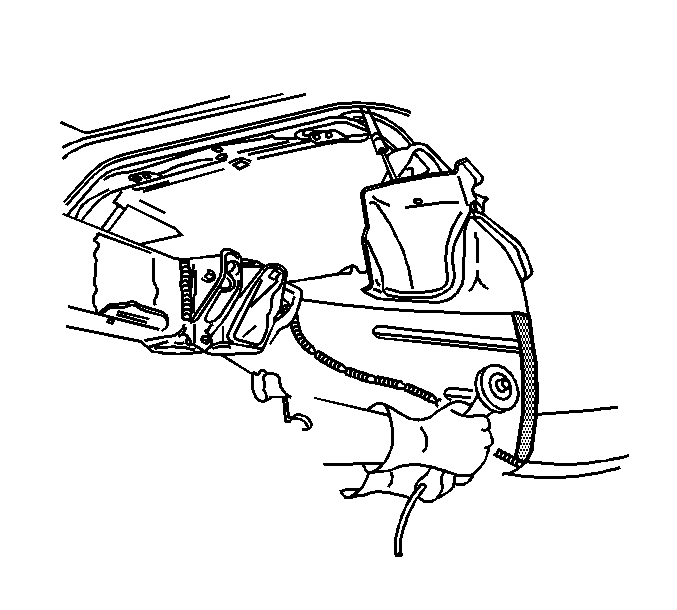
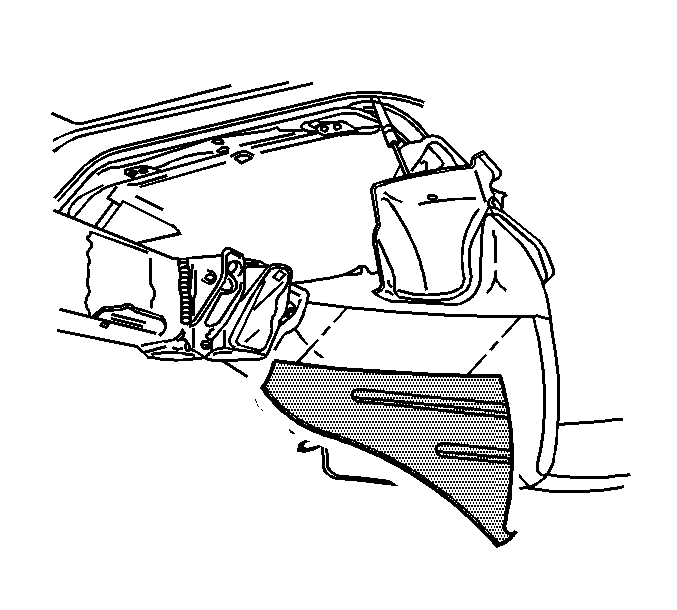
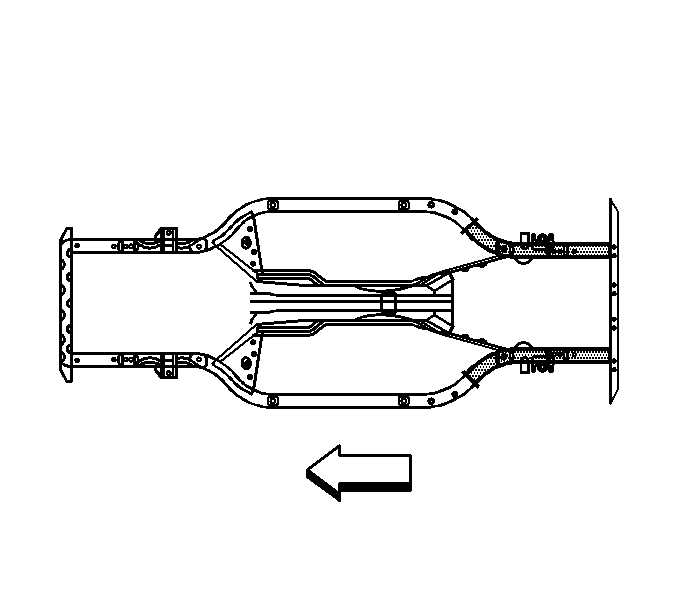
Installation Procedure
- Determine the sectioning joint location within the recommended area.
- Cut the new frame section from the new frame rail assembly.
- Perform the offset lap joint sectioning. Refer to Offset Lap Joint Repair .
- Clean and prepare all of the welded surfaces.
- Apply 3M weld-thru coating P/N 05916 or equivalent as necessary.
- Using a Metal Insert Gas (MIG) welder, stitch weld the tunnel brace to the frame rail duplicating the factory welds.
- Position the extension panel.
- Using a MIG welder, weld the extension panel duplicating the factory welds.
- Replace the outer lock pillar extension panel. Trim to fit the outer lock extension panel overlapping the 25 mm (1 in) flange created from the original extension.
- Drill 8 mm (5/16 in) holes in the new outer lock pillar extension for plug welding.
- Using a MIG welder, tack weld the outer lock pillar extension panel into place.
- Using a MIG welder, plug weld the outer lock pillar extension panel to the flange created form the original extension.
- Using a MIG welder, plug weld the outer lock pillar extension panel to the extension panel.
- Using a MIG welder, stitch weld the outer lock pillar extension to the frame rail duplicating the factory welds.
- Install the rear impact bar. Refer to Rear Bumper Impact Bar Replacement .
- Apply the sealers and anti-corrosion materials to the repair area, as necessary. Refer to Anti-Corrosion Treatment and Repair .
- Install the rear compartment panel. Refer to Rear Compartment Panel Replacement .
- Paint the repair area. Refer to Basecoat/Clearcoat Paint Systems .
- Install the fuel tank. Refer to Fuel Tank Replacement - Left Side or to Fuel Tank Replacement - Right Side .
- Install all related panels and components.
- Connect the negative battery cable. Refer to Battery Negative Cable Disconnection and Connection .
- Enable the SIR system. Refer to SIR Disabling and Enabling .
Caution: Refer to Collision Sectioning Caution in the Preface section.
